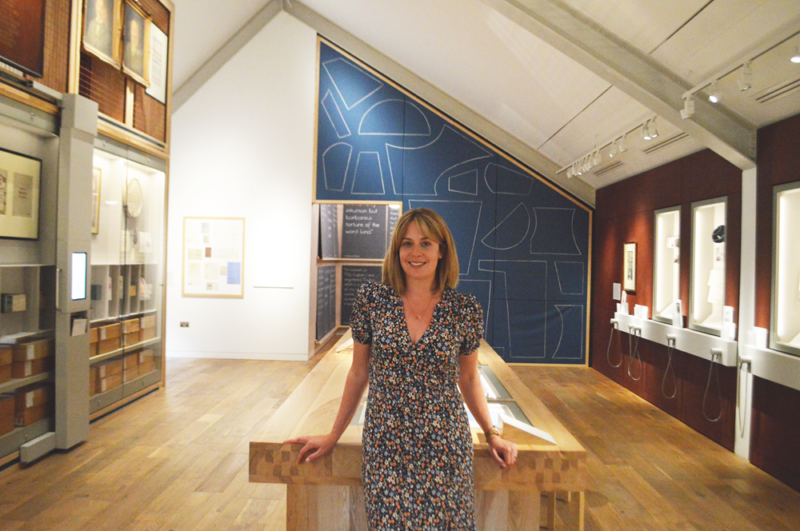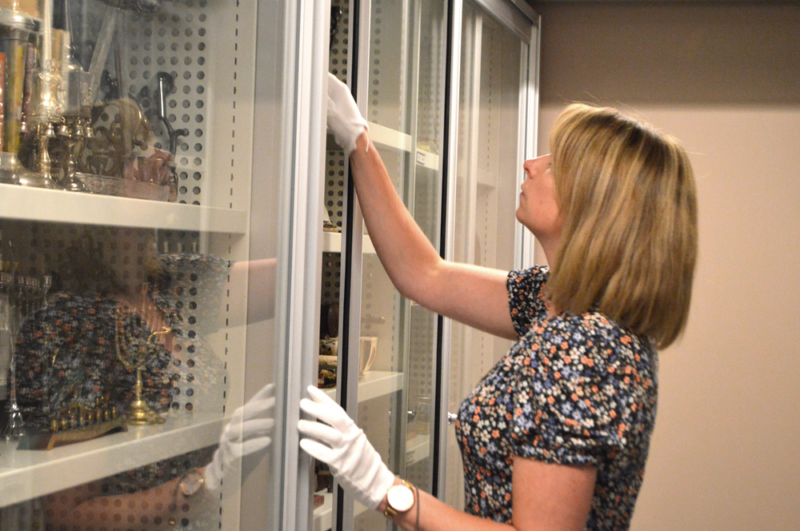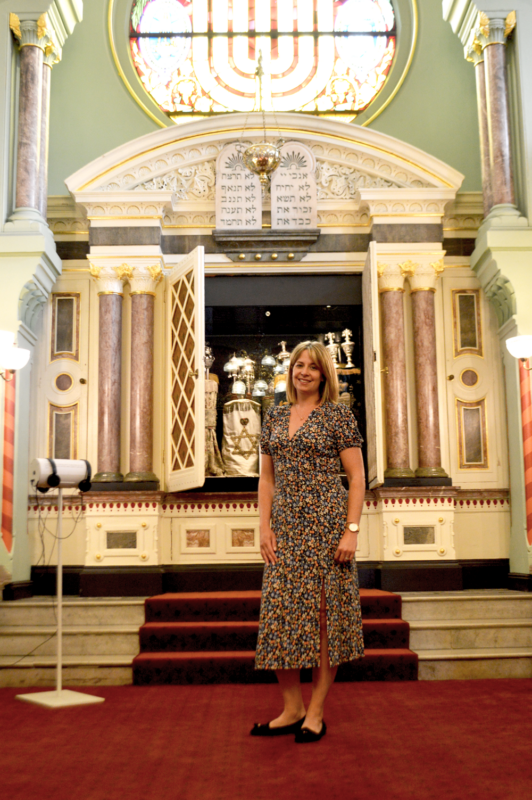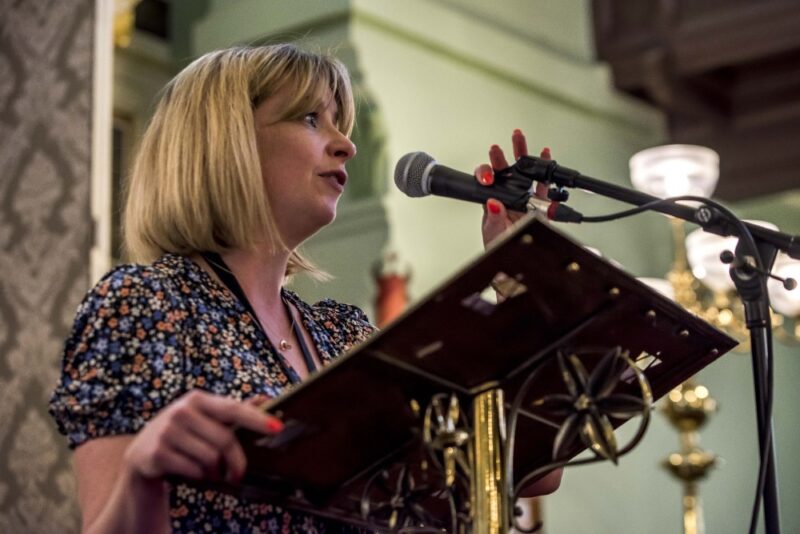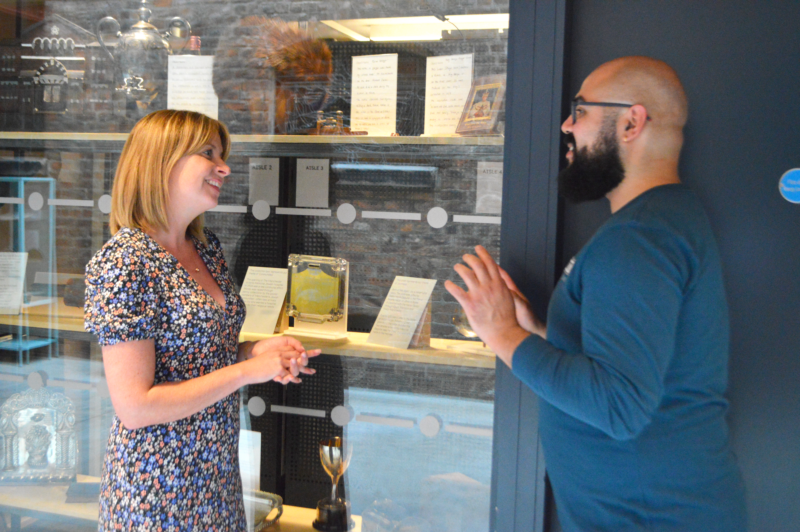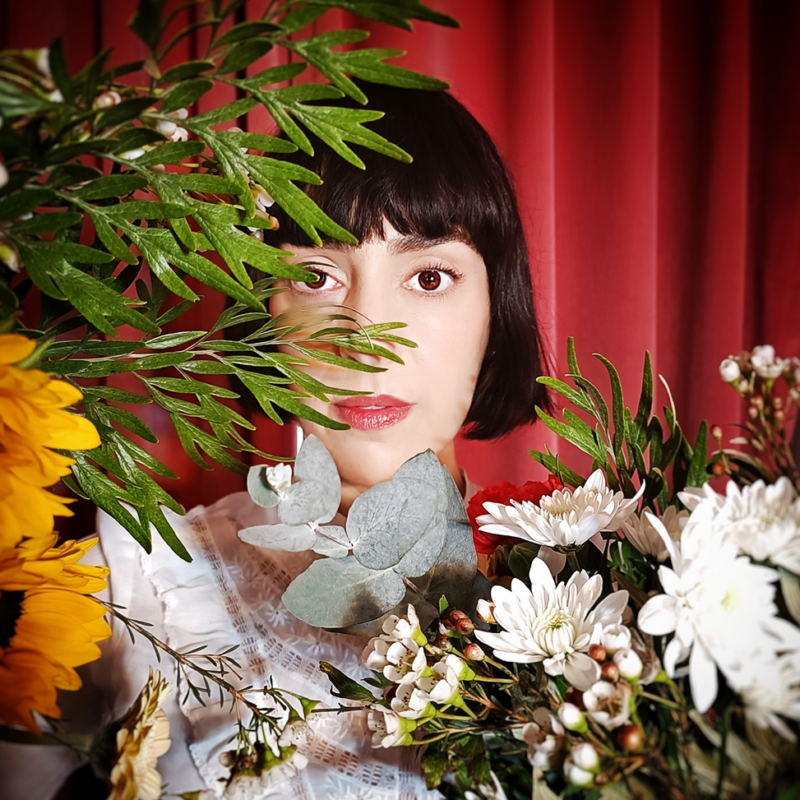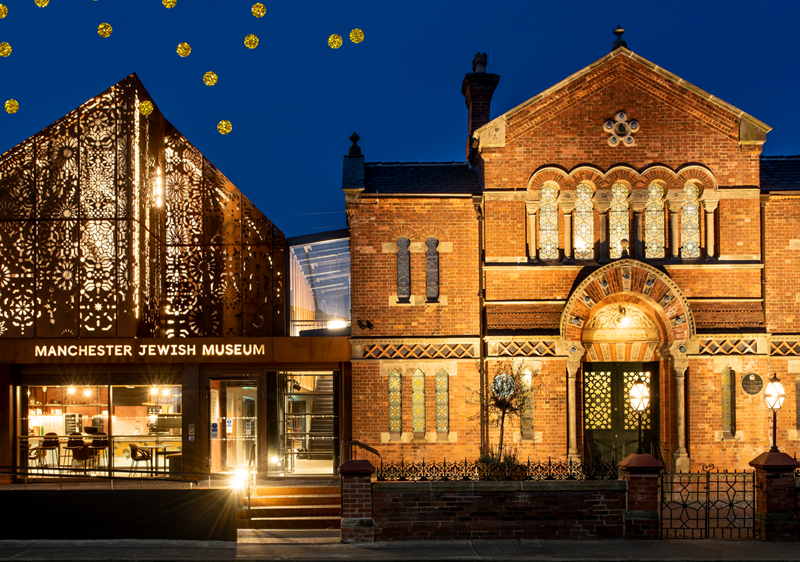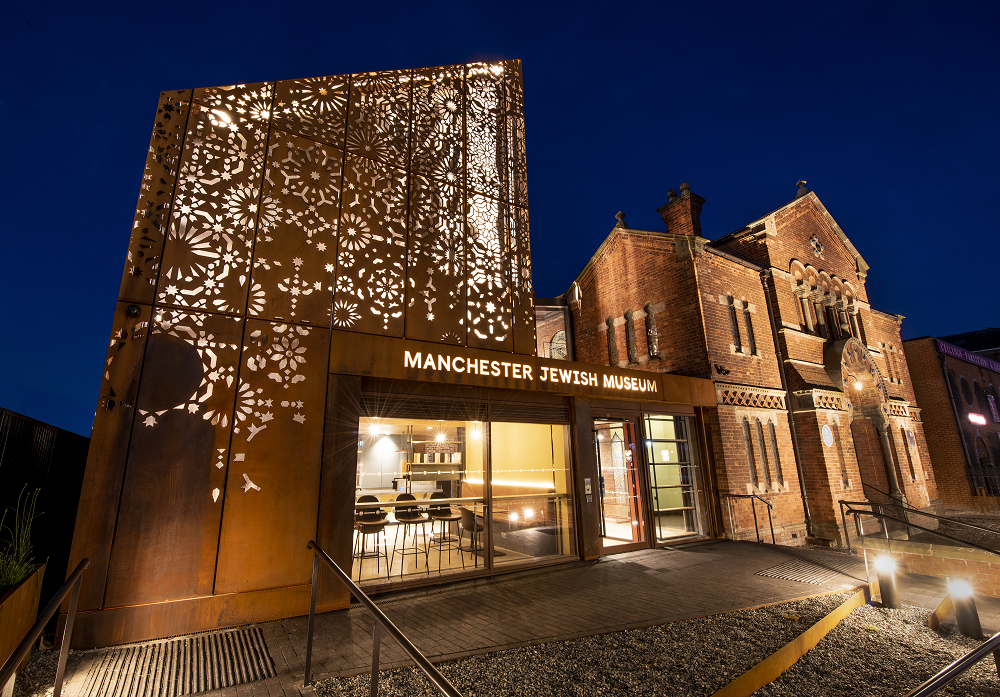Curator and Deputy Chief Executive Alex Cropper to hand over Manchester Jewish Museum’s collection for the next part of its journey
After 16 years of taking care of the museum’s vast collection and being a custodian of their 150-year old Spanish and Portuguese synagogue, Manchester Jewish Museum Curator and Deputy Chief Executive Alex Cropper will hand over to Josh Jones to continue documenting the stories of Manchester’s Jewish communities.
Alex Cropper will be stepping down as Curator and Deputy Chief Executive this August after over 16 years at the museum. She will be pursuing a new path in the Heritage Sector, building on the experience she has gained during her time as curator. Alex has helped lead the museum through a substantial period of change culminating in the launch of the new museum in July 2021, following a £6 million capital redevelopment. The modern gallery, which opened as part of the new museum, shares Jewish stories through three universal themes: Journeys, Communities and Identities, allowing both Jewish and non-Jewish audiences of the museum to find connections with their own experiences. In this interview, Alex shares her key memories from the past 16 years.
Alex, you’ve been our museum curator for the past 16 years, which is almost impossible to summarise in one interview. Do you remember the day you joined MJM?
Alex Cropper (AC): Well, I remember being terrified! I sat at my desk and the then Director, Stuart Hilton, put through a phone call to me. Someone was offering something to the collection, and I had to decide if we wanted it – I think I had been in the building for about 5 minutes!
I had applied here just as one of the many roles I was applying for as I was getting to the end of my MA. Having no prior experience in Jewish history, I didn’t think I had a chance to be honest, but Stuart and Melvyn Flacks took a chance on me and I’m so grateful that they did. Everyone was so kind as I was getting my head around the role and I’m sure that the support I received in the early days is why I’m here so many years later.
How has the museum evolved since you started?
AC: The museum is a totally different place to the museum I first joined. Obviously, it has physically changed but we are also so much more ambitious in terms of our programming and reach. I think we are lucky however that even though we have grown so much in terms of staff and size, we have retained the lovely warm feeling that the organisation had in its previous form. There are still a few staff and certainly some volunteers who were around before our development project and I’m sure they would agree.
Looking back at your 16 years as curator, what are some of the most significant achievements you are proud of?
AC: Well, probably a bit predictable, but I am very proud of the gallery we created in 2021. During my interview for the role in 2007 I was asked what I would do to change the old Permanent Gallery. So, my entire career here I was thinking about the new gallery – every time I found an interesting story or object in the collection, I was imagining it displayed in the new space. I’m proud of the gallery. I think the design team created such a beautiful space and I think it highlights the amazing collection and the diversity of Manchester’s Jewish Communities.
What were the biggest challenges you faced during that time and what have you learned?
AC: The challenge in MJM is always that we try and do so much with such little resources and people! I have at times here been curator and office manager, curator and bookkeeper, taught schools, picked stock for the shop, ran the bar and had my Dad fixing the place! We have all had to cover multiple jobs at times. But I think that is also what makes the team so close – we all know a great deal about all aspects of the museum and support each other in our work.
What exhibitions, projects or programs were particularly meaningful or impactful for you during your time as curator?
AC: I worked on an exhibition about Redbank in 2010. I loved the research for that exhibition because it was early in my time here and my first real time to utilize the incredible oral history archive which so wonderfully depicts everyday life. I also remember “Playing the Game”, an exhibition about sporting life in the community in 2012 (to coincide with the London Olympics). I went out and interviewed lots of people about their sporting careers and met some fascinating people and we collected lovely material for the collection.
And then there were some of the exhibitions which I didn’t curate but were very moving – my first ever exhibition here was “Anne Frank and Family”, a very simple but moving and beautifully designed exhibition of photographs of the Frank family pre-war – that one really stuck with me in terms of design. It was so simple and yet powerful.
What’s next? What are your plans and goals for the next chapter?
AC: I’m off to university again. I fancied a real change and so I am going to do an MA in Sustainable Heritage Building Management. I’m very excited to be studying again and exploring another part of the Heritage sector.
How do you hope the museum will continue to evolve after your departure?
AC: I have absolutely no doubt that the museum will continue to go from strength to strength. The passion and dedication of the staff, volunteers, trustees and supporters is incredible. I hope the museum continues to punch above its weight and pursue its big ambitions.
Stepping down to pursue new adventures after 16 years is a big change. How do you feel about it? What are you excited about and what will you miss?
AC: I’m excited but also very emotional. This place had been my whole career. I feel like I have grown up here and the museum is such a massive part of my life. I can’t imagine never being a little involved– even if it is just as a very enthusiastic supporter!
I’ll miss the collection. I’ll miss meeting interesting people every day. I’ll miss walking into the beautiful synagogue when it’s all quiet and peaceful. But I’ll miss the people here more than anything.
The curator’s role will be taken by Josh Jones who joins the museum with a rich museum experience, including decolonisation, collection management and community co-creation. Josh has previously worked as Gallery Technician at Manchester’s Science and Industry Museum, before moving over to Bradford to support the National Science and Media Museum as Community Curator with their Sound and Vision Project.
Josh Jones:
“I’m so excited to be joining the team at Manchester Jewish Museum. I’m a child of diaspora myself, so I see so much of my own experience reflected in the gallery’s themes of journeys, communities, and identities. I also love to cook, so an on-site cafe that strives to be an extension of the gallery is a huge plus as well!
I’m passionate about museums being spaces where people from all walks of life feel welcome, where people can actively participate, and where lives are enriched. MJM’s position within the community it represents makes it such a wonderful place to do that work.
I like to remember that the word ‘curator’ comes from ‘to care for’, because care should be at the heart of everything we do. Care for objects and for the stories they tell, but also care for people–for those that contributed to the collection, those that it represents, and all those that it can speak to, now and in the future.
Alex has done an amazing job caring for the Manchester Jewish Museum for the last 16 years. She’ll be sorely missed. It’s a privilege to be picking up what she’s putting down, and a responsibility I don’t take lightly. Thank you for having me.”
